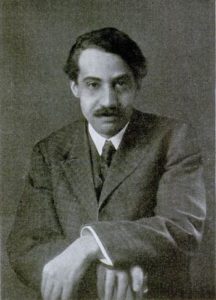
William Bairthwaite
This date marks the birth of William S. Beaumont Braithwaite in 1878. He was a Black author and publisher.
He was born in Boston to an immigrant from British Guyana and the daughter of a former slave. He was educated at home until 1884, when his father’s death left the family impoverished. Braithwaite attended public school but left at 12 to work and help his family. He worked for several people before settling into an errand boy job with the publishing firm of Ginn & Co., where he soon became an apprentice and compositor.
During this time, Braithwaite realized his passion for poetry. He submitted poems and critical essays to various newspapers and magazines, including The Atlantic Monthly, the North American Review, and "Lyrics of Life and Love." Two years later, he published his first anthology, "The Book of Elizabethan Verse." The second volume of poetry. "House of Falling Leaves" appeared in 1908. Braithwaite is recognized more for his editorials than his poems, mainly because the latter does not reference racial identity.
In 1913, he produced the first Anthology of Magazine Verse and Yearbook, the publication for which he is best known. This appeared annually between its inception and 1939, including Harlem Renaissance authors Sterling Brown, Countee Cullen, Langston Hughes, James Weldon Johnson, Anne Spencer, Claude McKay, and early works from Carl Sandburg, Vachel Lindsay, Amy Lowell, and Robert Frost. A Spingarn Medal recipient in 1918, Braithwaite founded the B.J. Brimmer Publishing Company in 1922.
His company published several books, most notably Georgia Douglas Johnson’s first volume of poetry, "Bronze," and James G. Cozzens' first novel, "Confusion." Braithwaite taught at Atlanta University, retiring in 1945. William Stanley Beaumont Braithwaite died in 1962.
The African American Atlas:
Black History & Culture an Illustrated Reference
by Molefi K. Asanta and Mark T. Mattson
Macmillan USA, Simon & Schuster, New York
ISBN 0-02-864984-2